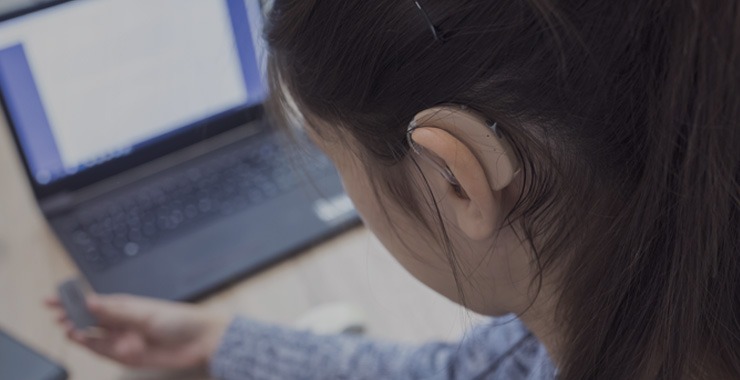Attention Deficit Hyperactivity Disorder affects millions of people worldwide and influences how they approach daily life, relationships, and responsibilities.
ADHD often brings challenges with focus, organization, emotional regulation, and time management, yet many individuals discover ways to adapt and succeed by using effective coping strategies. Daily structure, practical tools, and mindset shifts can make life less overwhelming and more manageable.
In many cases, even small changes can create meaningful improvements. Tools such as planners, alarms, and custom sticky notes can serve as supportive aids that reduce forgetfulness and increase productivity.
Developing strategies that fit individual preferences is essential because no two people experience ADHD in the same way. By combining practical methods with self-awareness, people can navigate their day with greater confidence and less stress.
The following sections explore everyday coping strategies tailored for those living with ADHD. Each strategy focuses on achievable adjustments that can make life smoother, more structured, and more rewarding.
Building a Consistent Routine
Consistency provides stability. A daily routine can reduce decision fatigue and create a predictable flow. For people with ADHD, predictable patterns minimize chaos and prevent impulsive changes that derail focus.
Creating Morning Anchors

A strong start shapes the rest of the day. Activities such as drinking water, stretching, or reviewing a short to-do list can become anchors that guide attention. Instead of attempting a complicated set of steps, a simple and repeatable pattern works best.
Using Evening Wind-Down Rituals
Evening rituals prepare the mind for rest. Reducing screen time, journaling, or setting up clothes for the next day provides closure. This helps regulate sleep schedules, which directly influence concentration and mood.
Time Management Strategies
Managing time with ADHD can feel like an uphill battle, yet clear methods can transform productivity.
Breaking Tasks Into Chunks

Large tasks often cause overwhelm. Breaking them into small, defined steps reduces anxiety and provides momentum. Completing each step offers a sense of accomplishment.
Setting Timers
Timers and alarms help structure work periods. Using the Pomodoro technique, for example, allows for 25 minutes of focused effort followed by a short break. This prevents burnout and increases consistency.
Prioritization Lists
Daily lists ranked by importance direct energy toward tasks that matter most. Using visual cues, such as symbols or colors, makes prioritization easier to follow.
Organizational Tools That Support ADHD
Organizing space and thoughts improves efficiency. External systems often compensate for internal struggles with attention.
Visual Reminders
Visual reminders placed in key locations can help prevent forgetfulness. Color-coded notes or labeled bins reduce confusion and keep important items within reach.
Digital Support

Calendar apps, reminder tools, and project trackers help externalize memory. Syncing these with devices ensures accessibility throughout the day.
Physical Aids
Simple tools such as bins, baskets, and folders keep physical clutter in order. Assigning specific homes for everyday objects, like keys or wallets, cuts down on lost time searching.
Emotional Regulation and Self-Awareness
ADHD is not only about focus. Emotional intensity often adds to the challenges. Recognizing emotions and regulating reactions helps improve daily life.
Practicing Mindfulness

Mindfulness activities calm the nervous system. Focusing on breathing, guided meditation, or mindful walks promotes awareness without judgment.
Self-Monitoring
Keeping a mood journal helps track triggers. By noticing patterns, individuals can prepare for moments when emotional regulation becomes difficult.
Support Systems
Talking with trusted friends, mentors, or therapists provides an outlet for emotions. Having someone to share experiences with builds resilience.
Coping With Work and Academic Demands
The demands of work and school settings can feel overwhelming, but strategic approaches help maintain focus and reduce stress.
Structuring the Workspace
A clean and organized workspace reduces distractions. Keeping only essential tools on the desk provides clarity.
Using Accommodations

Requesting reasonable accommodations, such as extended time on assignments or flexible deadlines, ensures fair performance opportunities. Many institutions legally support these adjustments.
Task Scheduling
Planning tasks during peak energy periods maximizes output. If concentration is stronger in the morning, scheduling demanding work during that time provides better results.
Physical Health and ADHD
Physical well-being supports cognitive function and focus. Small adjustments in health habits can create a large impact.
Exercise as a Focus Tool
Regular exercise reduces restlessness and increases dopamine production, which supports attention. Even short walks can improve mood and concentration.
Nutrition Choices
Balanced meals stabilize energy. Reducing excess sugar and processed foods minimizes crashes. Foods rich in protein and omega-3 fatty acids enhance brain function.
Sleep Consistency
Quality sleep restores mental clarity. Establishing consistent sleep schedules and limiting late-night stimulation prevents fatigue-driven distractions.
Social Strategies
Relationships often feel complicated for those with ADHD due to impulsivity or distractibility. Proactive social strategies help maintain strong connections.
Clear Communication
Being open about ADHD challenges helps others understand behaviors that may otherwise be misinterpreted.
Active Listening
Focusing on listening instead of preparing a reply improves conversations. Repeating back key points ensures accurate understanding.
Planning Social Time
Scheduling social interactions prevents isolation. Setting reminders helps maintain consistency in friendships.
Practical Home Management
ADHD often disrupts home management, yet structured methods can simplify responsibilities.
Cleaning in Stages
Instead of attempting to clean the entire home at once, dividing tasks into stages creates achievable goals. One room or one drawer at a time reduces overwhelm.
Meal Preparation
Preparing meals in advance saves time and energy. Using batch cooking or pre-chopped ingredients prevents last-minute stress.
Reminder Boards
Placing boards with reminders in the kitchen or hallway reinforces habits. Household members can also contribute to shared boards for accountability.
Leveraging Creative Outlets
Creativity is often strong in individuals with ADHD. Engaging in creative outlets offers expression and stress relief.
Artistic Expression
Painting, drawing, or music provides focus and allows emotions to be expressed positively.
Writing and Journaling
Writing thoughts down organizes ideas and reduces mental clutter. Journaling also serves as a safe space for reflection.
Movement-Based Expression
Dance, yoga, or theater combine creativity with physical release, supporting both mind and body.
Seeking Professional Help
Professional support builds long-term strategies for ADHD management.
Therapy Options
Cognitive Behavioral Therapy (CBT) helps restructure negative thought patterns. Coaching provides step-by-step guidance for achieving goals.
Medical Interventions

Medication prescribed by professionals can regulate brain chemistry. Regular check-ins ensure that treatment remains effective and safe.
Community Resources
Support groups connect individuals with shared experiences. Communities offer practical advice and emotional encouragement.
Building Self-Compassion
Living with ADHD often involves setbacks. Self-compassion allows people to recover quickly instead of dwelling on difficulties.
Positive Self-Talk
Replacing negative self-talk with affirming phrases encourages resilience.
Celebrating Small Wins

Recognizing small achievements, such as finishing a task or maintaining a schedule, reinforces progress.
Forgiveness of Mistakes
Mistakes do not define ability. Viewing them as learning opportunities prevents discouragement.
Conclusion
ADHD shapes life in unique ways, yet daily coping strategies can ease challenges and increase productivity.
By building consistent routines, using organizational tools, managing time effectively, and supporting emotional well-being, individuals create more balance in their lives.
Practical adjustments in health, home management, and social interactions add further support.
Professional help and self-compassion complete a well-rounded approach to thriving with ADHD.
Every person deserves strategies that work for them. Custom sticky notes, structured routines, creative outlets, and community resources are part of a toolkit that evolves with experience.
Coping with ADHD requires patience and adaptability, but progress builds with each small step.
Daily effort, combined with a willingness to adapt, helps transform overwhelming challenges into manageable parts of life.
By practicing consistent strategies, people living with ADHD can create a fulfilling life built on growth, support, and resilience.

